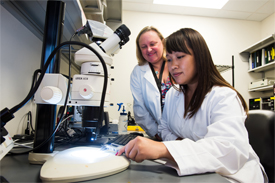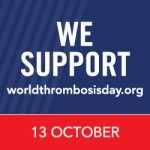
Link between Clotting Proteins & Heart-valve Calcium Deposits?
Researchers believe they’ve found a link between clotting proteins like von Willebrand Factor to aging hearts that are hardened by calcium deposits.
Von Willebrand Factor (vWF), is a clotting protein that aids platelets in forming clots when needed in blood vessels. When this protein is deficient to a substantial amount the patient is typically diagnosed with having von Willebrand Disease.
A recent study out of Rice University (and published in the American Heart Association journal Arteriosclerosis, Thrombosis and Vascular Biology) has found, through studies of pigs’ heart valves, that age and infiltration of vWF into the collagen-rich interior of those valves, can contribute calcium nodules being formed and ultimately…the hardening of those valves.
“As you get older, collagen becomes less organized,” Balaoing, the study’s lead auther, told Rice News. “Because the distinct arrangement of extracellular matrix disappears, I think proteins like VWF permeate inside the valve more than what you would see in young, healthy adults.
This work may lead to discoveries that can help limit calcification and other valve diseases. The American Heart Association, National Institute of Health, the Mabel and Everett Hinkson Memorial Fund, and the Mary R. Gibson Foundation all helped to support the research.
Photo Credits: Rice University



